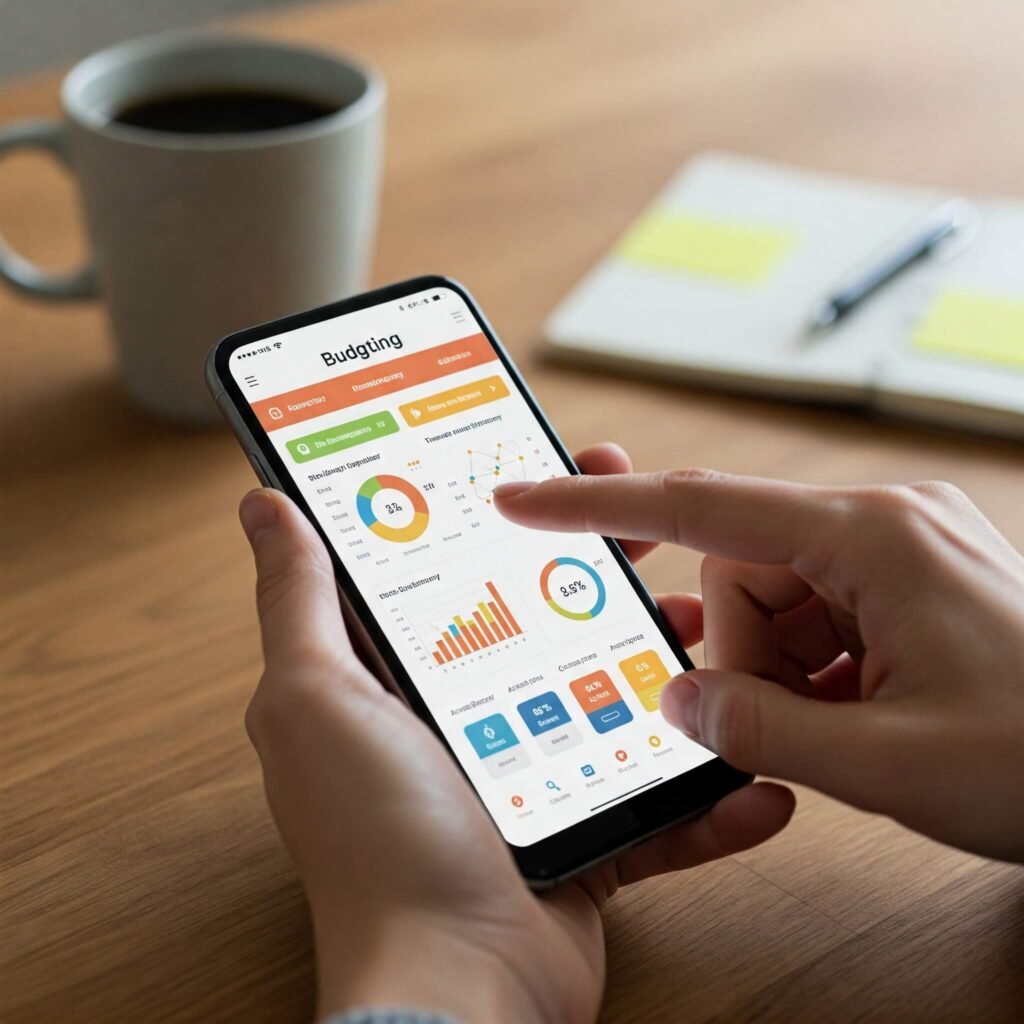Why Personal Finance Software Matters
Personal finance software streamlines money management, making it easier to budget, save, and invest. A 2024 survey by NerdWallet found that 62% of users of financial apps reported improved savings habits. With intuitive dashboards and automation, these tools empower you to build wealth confidently.
Benefits of Using Money Management Tools
- Clear Financial Overview: Track all accounts in one place.
- Time-Saving Automation: Automate bill payments and savings.
- Goal Tracking: Monitor progress toward financial milestones.

Top Personal Finance Software for 2025
Here’s our roundup of the best personal finance software to help you master your money in 2025.
1. Mint for Easy Budgeting Software
Mint is a top choice for personal finance software, offering free budgeting and expense tracking. Its user-friendly interface categorizes spending and sends overspending alerts. Lisa, a 29-year-old teacher, used Mint to cut unnecessary subscriptions, saving $4,000 in a year.
- Key Features:
- Free budget tracking with bank syncing.
- Bill reminders to avoid late fees.
- Credit score monitoring.
- Pro Tip: Customize budget categories to match your lifestyle.
2. YNAB for Goal-Driven Money Management
YNAB (You Need A Budget) is a powerful personal finance software that emphasizes assigning every dollar a purpose. It’s ideal for goal-oriented savers. James, a 26-year-old freelancer, used YNAB to save $7,000 for an emergency fund in 15 months.
- Why It Shines:
- Real-time spending insights.
- Goal-setting for savings or debt payoff.
- Free educational resources.
- Pro Tip: Attend YNAB’s workshops to boost your budgeting skills.

3. Personal Capital for Wealth Management Software
Personal Capital combines personal finance software with investment tracking, offering a free dashboard for net worth and retirement planning. Emma, a 34-year-old nurse, used Personal Capital to optimize her investments, growing her portfolio by 10% in two years.
- Standout Features:
- Free net worth tracking.
- Retirement planner for long-term goals.
- Fee analyzer to reduce investment costs.
- Pro Tip: Use the investment checkup tool to diversify your portfolio.
4. Quicken for Comprehensive Financial Tracking
Quicken is a robust personal finance software for detailed money management, including budgeting, bill payments, and investment tracking. Mark, a 45-year-old small business owner, used Quicken to streamline his finances, saving $5,000 annually on late fees and inefficiencies.
- Why It’s Great:
- Customizable reports for in-depth analysis.
- Bill pay integration for convenience.
- Desktop and mobile access.
- Pro Tip: Set up recurring bill payments to stay on top of expenses.

5. EveryDollar for Simple Budgeting Tools
EveryDollar is a straightforward personal finance software for zero-based budgeting, created by Ramsey Solutions. Sarah, a 38-year-old mom, used EveryDollar to pay off $15,000 in debt in 18 months by sticking to a strict budget.
- Key Benefits:
- Free basic version with manual tracking.
- Premium version syncs with bank accounts.
- Debt payoff planning tools.
- Pro Tip: Use the free version to test zero-based budgeting before upgrading.
How to Choose the Right Financial Software
With so many personal finance software options, finding the best fit depends on your needs. Here’s how to decide:
- Assess Your Goals: Need budgeting help? Try Mint or EveryDollar. Want investment tracking? Go for Personal Capital.
- Check Costs: Start with free tools like Mint or EveryDollar’s basic version.
- Read Reviews: Visit Trustpilot for user feedback.
- Test First: Use free trials to ensure the software suits your workflow.
Take Control of Your Money Today
Personal finance software makes mastering your money easier than ever. From Mint’s simple budgeting to Personal Capital’s wealth tracking, these tools help you budget, save, and invest smarter. Pick one or two to start, and take the first step toward financial freedom.
Actionable Steps:
- Sign up for Mint or EveryDollar’s free version.
- Set a savings goal, like $1,000 in six months.
- Explore Personal Capital’s investment tools for long-term planning.











































